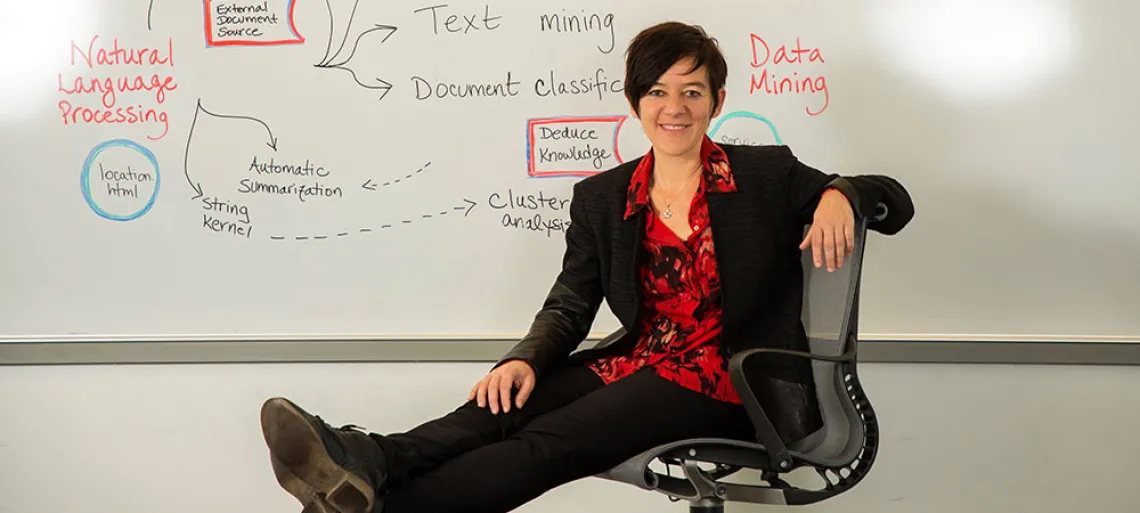Eller and UA Researchers Receive $1.4M Grant to Create Free Health Tool

With a four-year, $1.4 million grant from the National Library of Medicine of the National Institute of Health (NIH), Eller MIS researchers will create of a free online tool that simplifies healthcare related text, making communication from a person’s doctor or medical team easier to understand.
Increasing rates of chronic diseases, such as diabetes, HIV, and obesity, require patients to be more involved in their own healthcare. However, only 12 percent of American adults have proficient health literacy, meaning nearly nine out of ten adults may lack the skills they need to manage their health, according to the U.S. Department of Health and Human Services.
“When you’re diagnosed with a serious disease, you are vulnerable,” said Gondy Leroy, grant principal investigator and associate professor of MIS. “This is partially due to not understanding all relevant information, a problem we can solve with today’s technology. We need to increase people’s understanding so they’re empowered to make proper decisions about their healthcare.”
Leroy is heading up a multidisciplinary research team tasked with increasing health literacy by creating an online writing support tool for medical professionals. Similar to popular editing software, the tool will provide suggestions for replacing difficult terminology, improving awkward expressions, and tuning the flow and structure of the information to make it more understandable for those with little background knowledge on the topic.
The most commonly used tools available today measure the difficulty of medical text using a “readability formula,” according to Leroy. This is supposed to make the text more understandable, but there is little evidence showing this formula helps with rewriting text for improving comprehension and positive health outcomes.
Leroy’s team is working on a more effective tool that will be tested through comprehensive user studies to ensure it increases understanding among patients. It will be available in both English and Spanish, and is slated to be complete by the end of 2019. Although, earlier, less sophisticated versions may be made available sooner.
The research team includes David Kauchak, Computer Science Department at Ponoma College in Claremont, California; Patricia Anders, College of Education at the University of Arizona; Sonia Colina, Department of Spanish and Portuguese, College of Humanities at the University of Arizona; Gail Pritchard, Medical Student Education, College of Medicine at the University of Arizona; Debra Revere, School of Public Health at the University of Washington in Seattle; Nicole Yuan, Health Promotion Sciences Department, Mel & Enid Zuckerman College of Public Health at the University of Arizona; and Diane Haeger, Health Education Program, El Rio Community Health Center in Tucson, Arizona.

